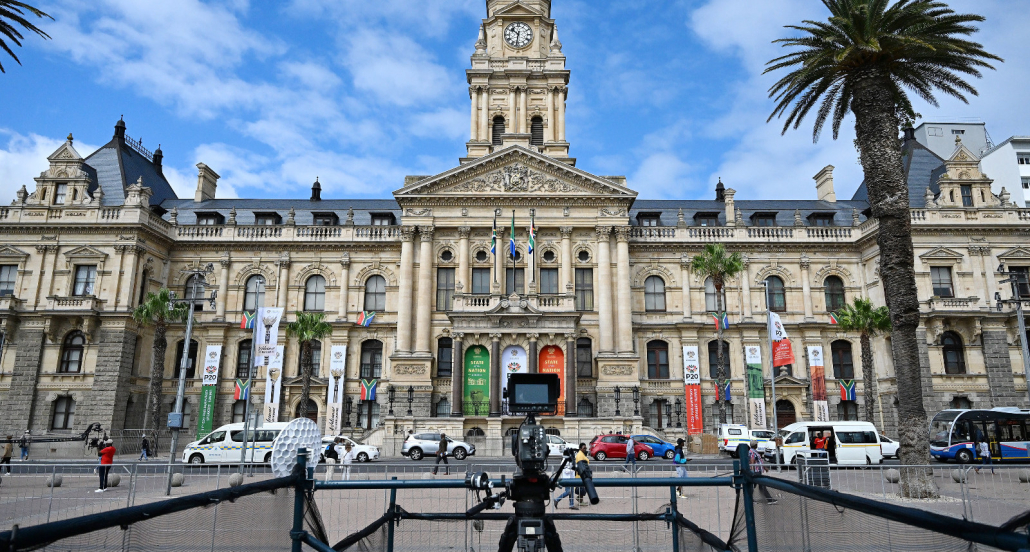Image: Flickr/GovernmentZA
The Parliamentary Monitoring Group (PMG) is well-known as a dependable source of information on our legislature and its doings. Providing information on committee meetings, alerting the public to calls for comment on bills and discussion documents, and publishing the scheduled programme of meetings and debates is all in day’s work for the organisation.
Parliament is the body that, among other duties, develops and passes laws that affect all South African residents. In its own words, it describes itself as “the place where the members of Parliament [MPs] look after your interests” and “is accountable to the people of South Africa.”
Public participation in the processes of the legislature is vital in a well-functioning democracy, because MPs are elected to represent the people of the country, and act as the voice of the people. There are various ways in which the public can ensure this is the case, such as commenting on laws in development, taking part in interviews for leaders of important public institutions, and engaging with parliamentarians through written questions, lobbying, or petitions. These and other channels allow people to monitor and follow the diverse activities of Parliament.
Committee meetings and candidate interviews, for instance, are streamed live on Parliament’s YouTube channel and Facebook profile, so members of the public can immediately pick up on anything they think might be questionable.
In March 2025 PMG revealed its latest digital tool, the ParliMeter, which uses open data sourced from Parliament to help residents and parliamentarians alike by improving access to information, enhancing transparency and therefore monitoring capabilities, and empowering civil society and residents to hold their elected representatives accountable. PMG has collaborated with the Organisation Undoing Tax Abuse (OUTA) and OpenUp to develop the ParliMeter dashboard, which was co-funded by the EU under the Enhancing Accountability Programme.
“By enhancing public engagement and monitoring, the platform seeks to invigorate Parliament’s oversight role and promote informed civic participation,” says PMG. “We believe that enhancing access to parliamentary data is essential for understanding, supporting, improving, and communicating the work carried out by parliamentarians on behalf of all South Africans.”
Want to know how a particular bill is progressing through Parliament? Interested in finding out how many meetings MPs really do attend? How many meetings ran late or overlapped with others? You will find the answers on the ParliMeter.
“ParliMeter is more than a tool – it is a gateway to participatory democracy,” says OUTA’s project manager for the ParliMeter, Rachel Fischer. “By providing accessible and transparent legislative data, we empower citizens, researchers, and civil society organisations to hold Parliament accountable in real time.”
The platform is a work in progress, says OpenUp, and will be improved and enhanced when needed. “In future, we aim to add more rich data including, but not limited to, voting patterns, public participation, oral and written questions, and meeting scheduling efficiency.”
Public participation in Parliament is vital
In the Journal of Public Administration, Sonwabo Stuurman of the Nelson Mandela University writes: “In the context of South Africa, public participation is a critical and most essential tool that is used to foster good governance, accountability, and transparency that inevitably leads to better and efficient service delivery.”
True public participation, Stuurman adds, becomes a cornerstone and a significant pillar of democracy, especially in the South African context where the majority were excluded for so long. It is essential that people have a say in governance matters which affect them.
There are various ways in which citizens can get involved with the various structures and institutions of democracy, some of which have already been mentioned. These include voting, contacting a political representative such as a ward councillor, campaigning or demonstrating around issues that concern them, and taking part in political processes such as calls for comment on legislation.
Corruption Watch regularly submits comments on bills or policies in development, and one of our long-standing focus areas – since 2016 – is the monitoring of appointment processes to leadership positions in key institutions supporting democracy and crime- and corruption-fighting institutions, such as the Public Protector or the Auditor-General. It is partly due to our advocacy work around this matter that such interviews, which take place in Parliament, are now streamed for all to scrutinise.
The objectives of this work are largely to ensure that candidates are appointed in a transparent manner, assessed against clear merit-based and objective criteria, and that avenues for public participation in appointment processes are available. For instance, we wanted candidates’ CVs (redacted where necessary) to be published online so the public could scrutinise and vet them, and Parliament eventually allowed this.
It was during the appointment process for the fourth public protector that we launched this campaign, and while we supported the process itself because the outgoing public protector Thuli Madonsela had set a high standard and we were of the view that it should be maintained, we were not involved in the actual selection of a candidate and consequently did not take a stance on that specific aspect.
Since then we have conducted extensive public awareness and advocacy campaigns around transparency and merit-based selection in the appointments of the public protector, the national police commissioner, the executive director of the Independent Police Investigative Directorate, the inspector-general of intelligence, the deputy public protector, the auditor-general, the National Lotteries Commission board chairperson, South African Human Rights Commissioners, board members of the National Youth Development Agency, and members of the Commission on Gender Equality.
Keeping abreast of the daily happenings in Parliament through the various methods available, especially when it comes to issues that interest or affect you, will ensure that you are aware of the latest developments and can participate fully in the democratic process. This is not only your right, but your duty as a citizen or resident.

